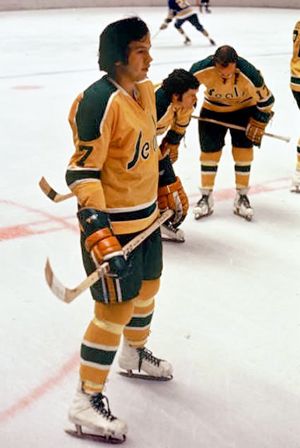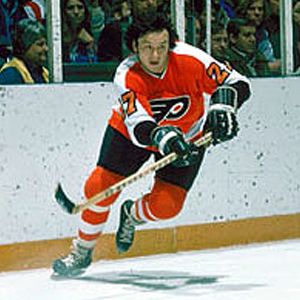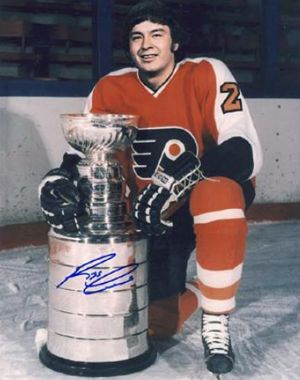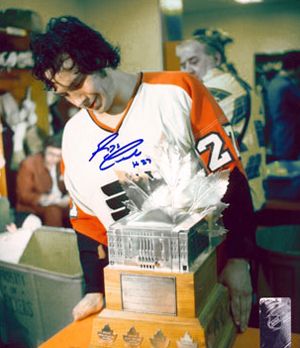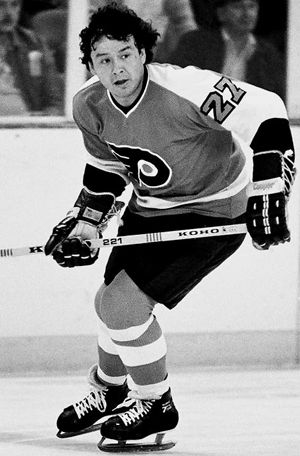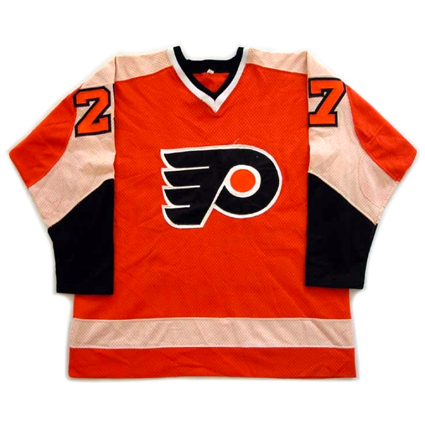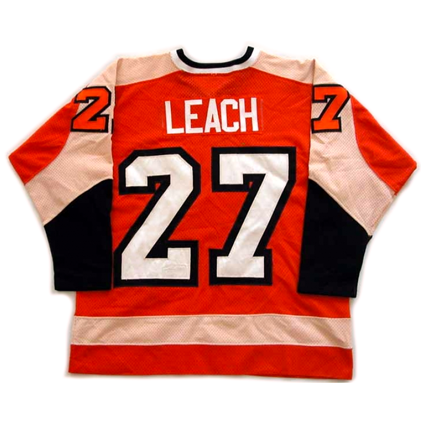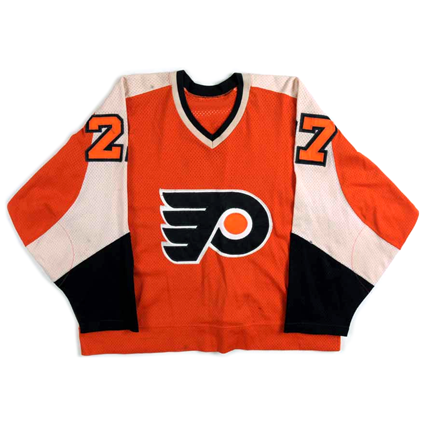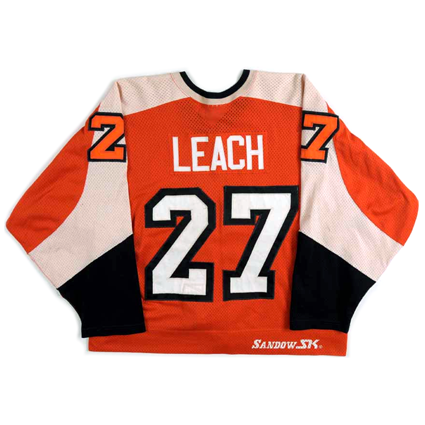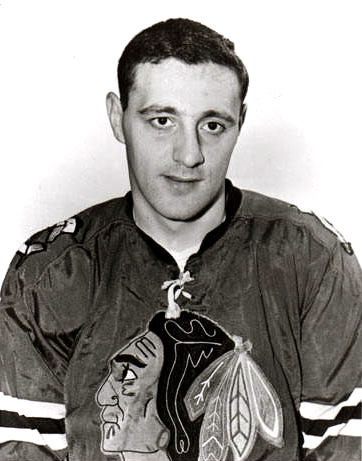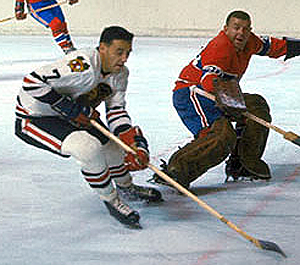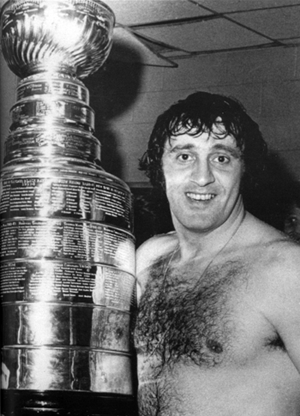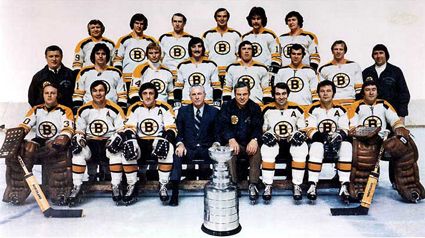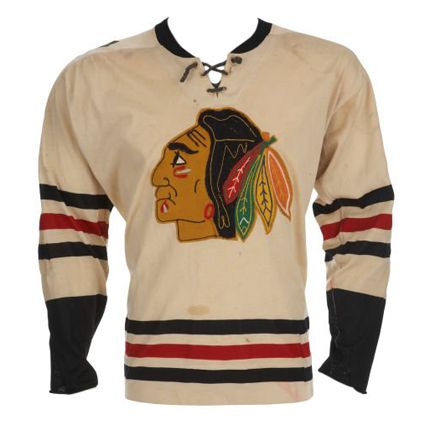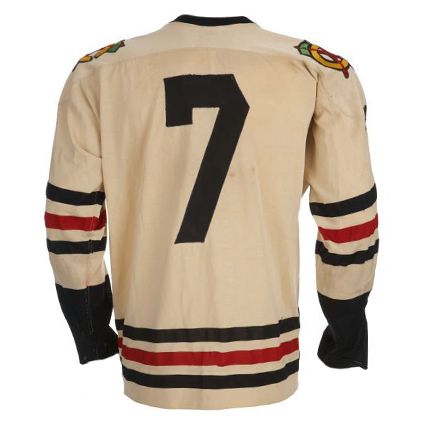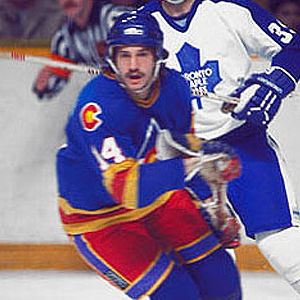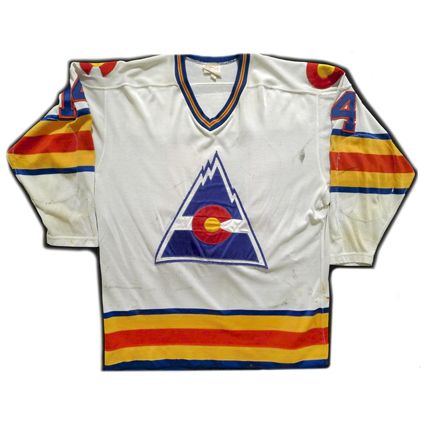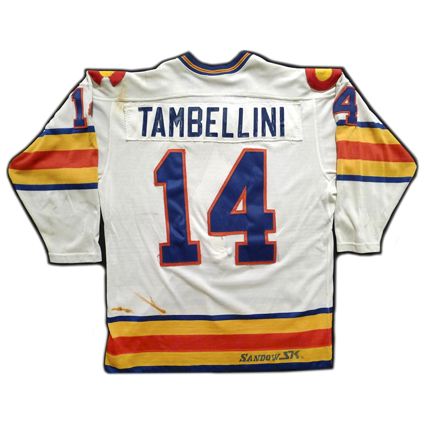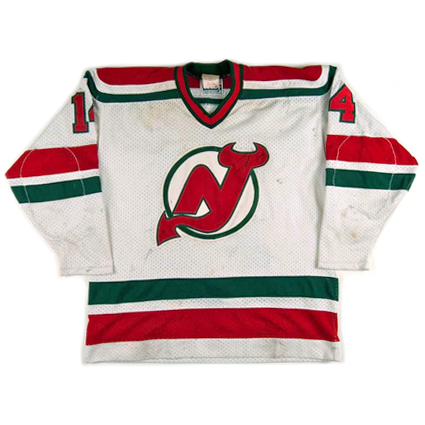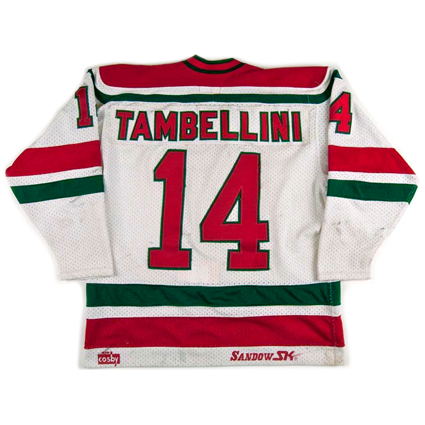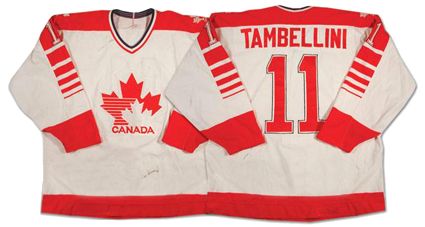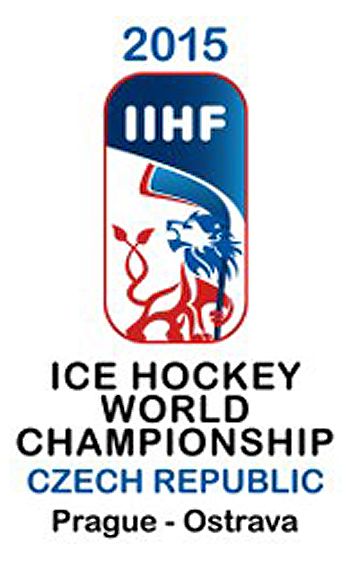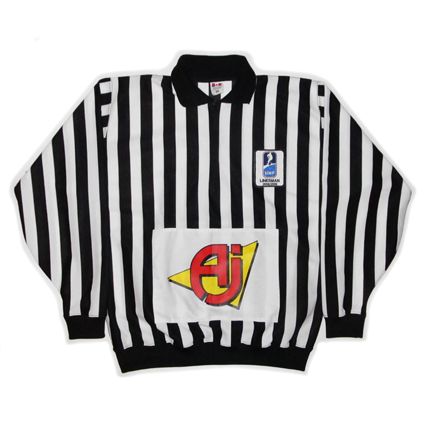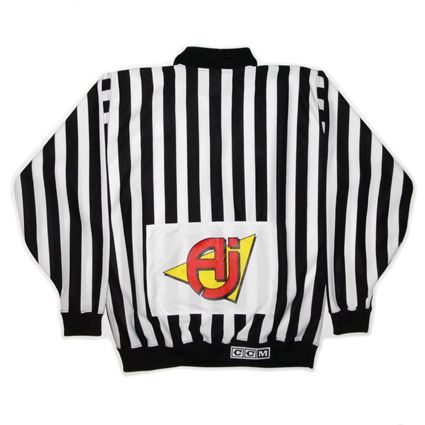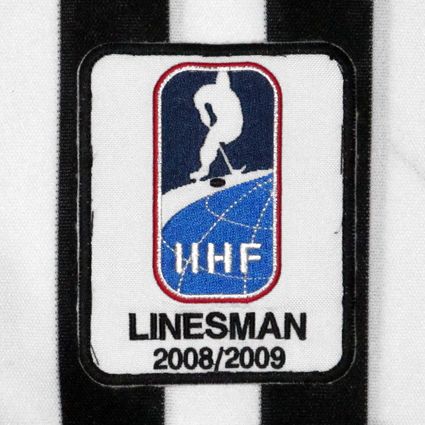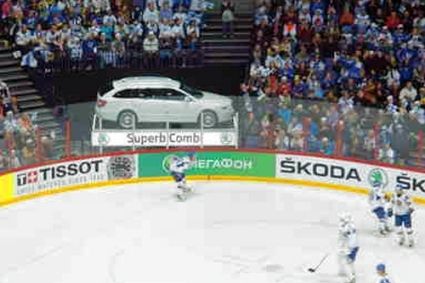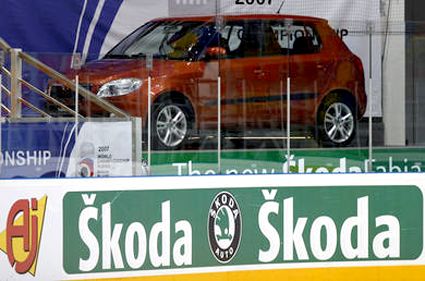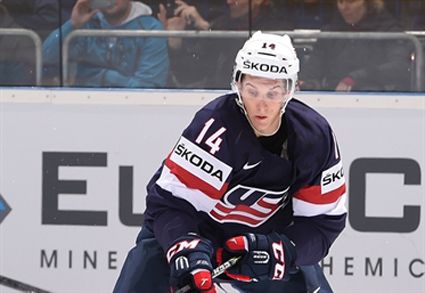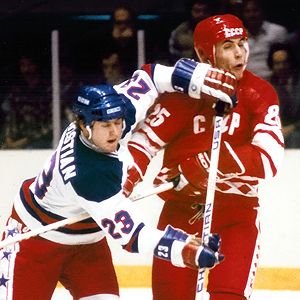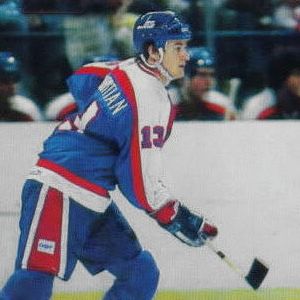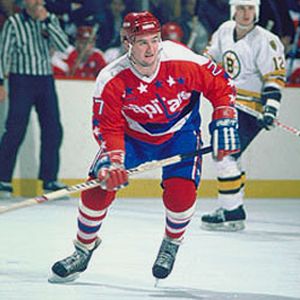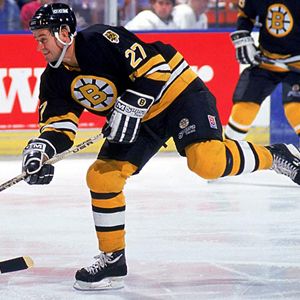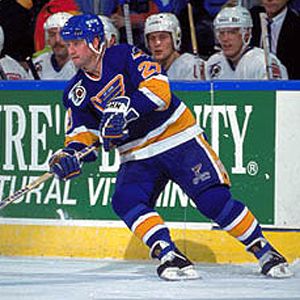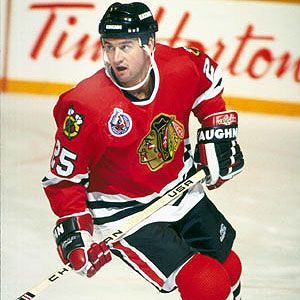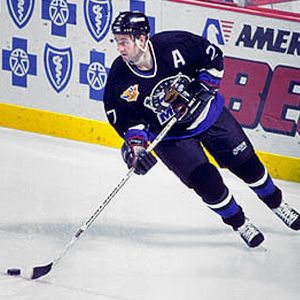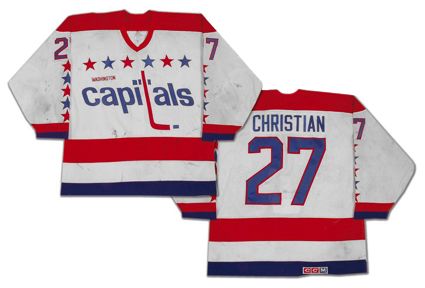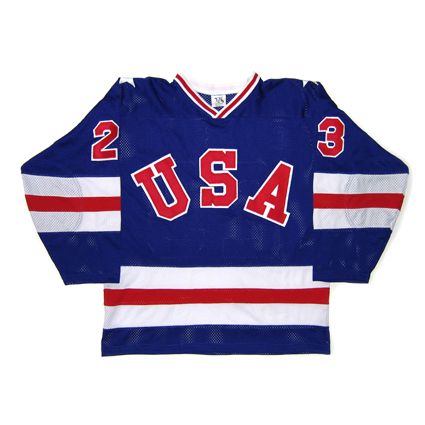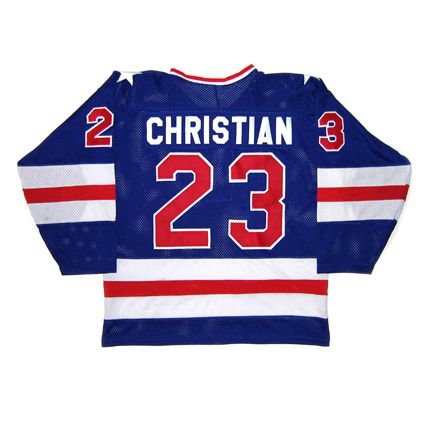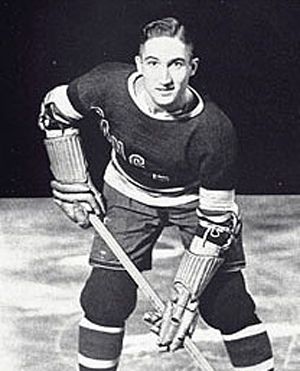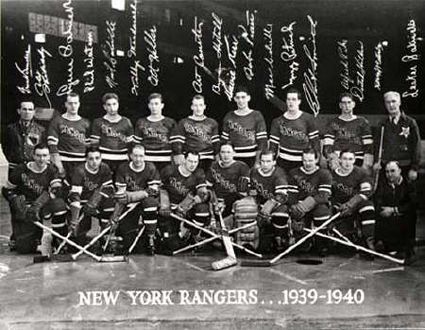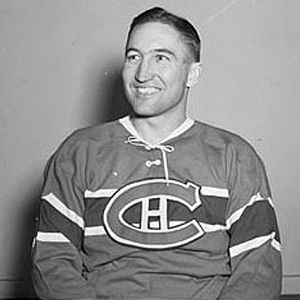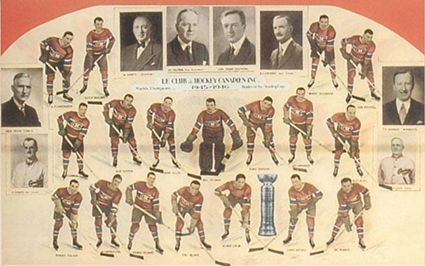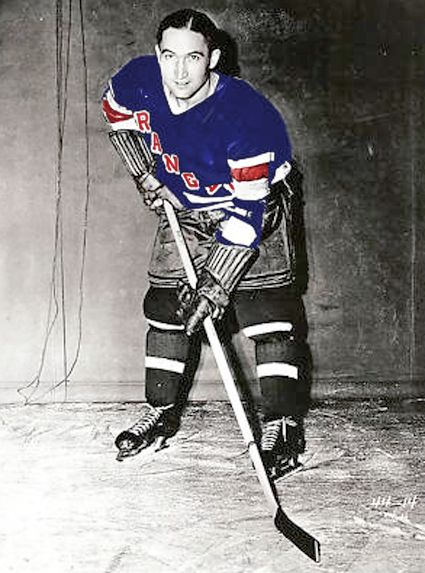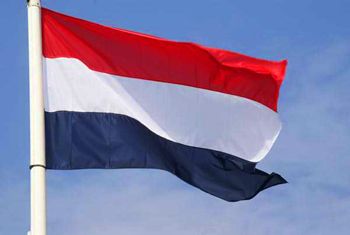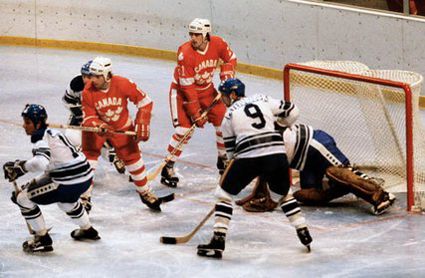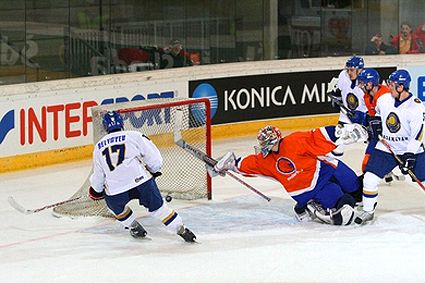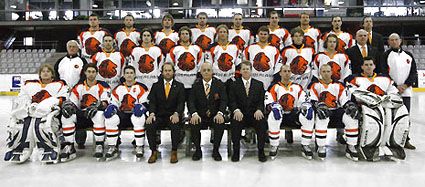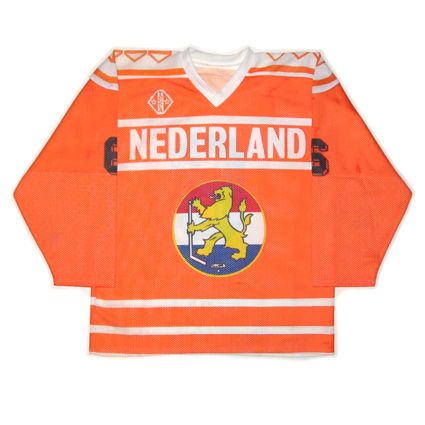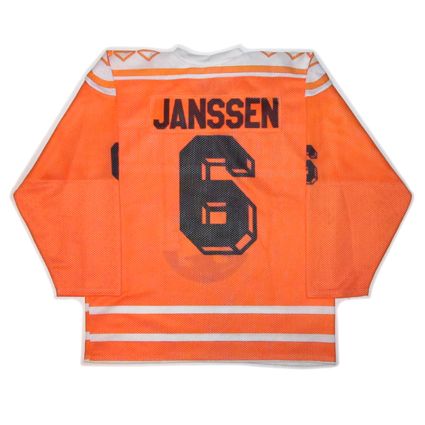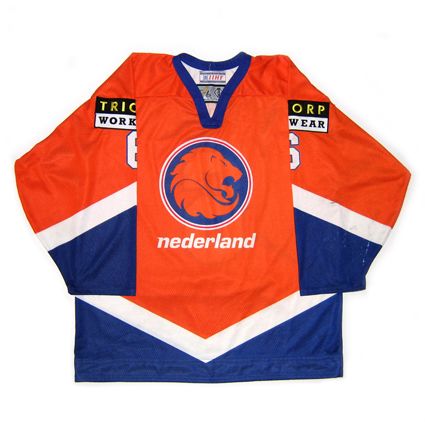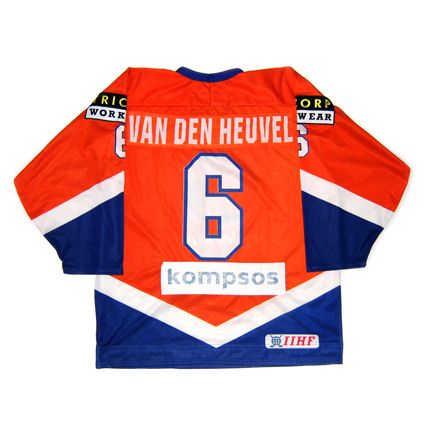Saturday, May 16, 2015
1980-81 Philadelphia Flyers Reggie Leach Jersey
After a prolific junior career with the Flin Flon Bombers, which included being the WCJHL Goal Scoring Leader in 1968 with 87 goals in only 59 games, and the Goal Scoring Leader, Leading Scorer and Player of the Year in 1970 after a season in which he scored 65 goals and 111 points, Reggie Leach was drafted 3rd overall by the Boston Bruins in the 1970 NHL Amateur Draft.
Still in need of seasoning, as well as facing the task of trying to crack the deep lineup of the defending Stanley Cup champion Bruins, Leach split time in the 1970-71 season between the Oklahoma City Blazers of the CHL, scoring 42 points in 41 games, and the Bruins, with whom he played 23 games, scoring just 2 goals, giving little clue as to what would follow.
He would make the Bruins lineup out of training camp and see action in 56 games before a trade to the perpetually struggling California Golden Seals, missing out on the Bruins eventual Stanley Cup later that year.
With the Seals, Leach played a larger role, evidenced by nearly equalling his 7 goals with the Bruins when he scored 6 in just 17 games. He would play two more seasons with the Seals, recording 20 goal seasons in 1972-73 and 1973-74 with 23 followed by 22.
Leach, wearing the notorious white skates of the Golden Seals
Leach was then traded once again, this time to the Philadelphia Flyers, who paid a steep price, two players and their first round draft pick for just Leach. While Philadelphia was the defending Stanley Cup champions themselves in 1974-75, Leach had no issues trying to crack their lineup as he had with Boston four years earlier. He would play all 80 games for the Flyers, doubling his 22 goals to 45 and raising his 46 points to 78 for third in Flyers scoring behind Bobby Clarke (116 points) and Rick MacLeish, one ahead with 79.
Philadelphia would then sweep the Toronto Maple Leafs, outlast the New York Islanders in seven and defeat the Buffalo Sabres 4 games to 2 to defend their championship.
Leach raised his game to a new level in 1975-76 when he led the entire NHL in goals with 61, beating runner up Guy Lafleur by 5. He added 30 assists to give him a career high 91 points that season. Trying for their third consecutive Stanley Cup, the Flyers again ousted the Maple Leafs, this time in seven, and eliminated the Bruins in five to return to the finals once again. The contrast in styles between the rough and rugged Flyers and the slick and smooth skating Montreal Canadiens could not have been greater, and the Canadiens prevailed after winning four straight games.
Leach had produced a masterful, dominating individual performance though, leading all scorers with 19 goals and 5 assists in 16 games for a total of 24 points. No one was even in the same league as Leach, as his 19 goals led the second leading goal scorer, the Bruins Jean Ratelle, by 11 goals! His 10 game goal scoring streak and 19 playoff goals in one season set NHL records which still stand today.
In one memorable Semifinal game, Leach single handedly eliminated the Bruins in Game 5 with an NHL playoff record five goal performance in a 6-3 win. Despite the Stanley Cup loss, Leach was named the winner of the Conn Smythe Trophy on this date in 1976, only the third player since 1965 to be awarded the trophy from a losing team, and 35 years later, still the only non-goaltender from a losing team to win the award.
Prior to the start of the following NHL season, Leach had the honor of playing for Team Canada during the inaugural Canada Cup tournament in September of 1976.
He would play six more seasons with the Flyers, which included a 50 goal season in 1979-80, seventh in the league and just 6 back of the league leaders Blaine Stoughton and Danny Gare's 56. His goal scoring was a contributing factor in the Flyers 35 game unbeaten streak that season. Philadelphia again returned to the Stanley Cup Finals as Leach chipped in 9 goals and 16 points in 19 games.
After his eight total seasons with Philadelphia, never scoring less than 24 goals, Leach's career would wind down with one season as a free agent signing with the Detroit Red Wings and a season with the Montana Magic of the CHL.
In all, Leach would play 934 NHL games while scoring 381 goals and 666 point, two NHL All-Star Games in 1976 and again as the game's MVP in 1980, as well as his name on the Stanley Cup and his remarkable Conn Smythe Trophy. He was inducted into the Philadelphia Flyers Hall of Fame in 1992.
Today's featured jersey is a 1980-81 Philadelphia Flyers Reggie Leach jersey. This basic Flyers jersey with it's full-length sleeve stripes which then wrap around the arms down by the wrists has been in use throughout Flyers history since the very first day. Bold, black trim was added to the jersey in the early 1980's, but when this orange style was brought back as an alternate jersey in 2008, complete with the contrasting nameplate look of the early 1970's, the clock was reset, as the black trim was no longer there.
Bonus jersey: Today's bonus jersey is a 1981-82 Philadelphia Flyers Reggie Leach jersey from the following season. Note the absence of the white waist stripe, which was eliminated to create a longer, taller look when the sweater was paired with the new full length pants, commonly referred to as "Cooperalls" (despite being a similar CCM product), which had a vertical stripe which ran down the entire leg in 1981-82.
Today's video segment begins with Leach scoring his record setting five goals in one playoff game against the Bruins, which paved the way for his winning the Conn Smythe Trophy later that season.
Next, here is Leach sharing his excitement about playing in the 2012 Winter Classic Alumni Game.
Labels:
Leach Reggie,
Philadelphia Flyers
Friday, May 15, 2015
1963-64 Chicago Black Hawks Phil Esposito Jersey
On this date in 1967, the course of NHL history was changed for the next ten years when the Chicago Black Hawks dealt Phil Esposito, Ken Hodge and Fred Stanfield to the Boston Bruins for Gilles Marotte, Pit Martin and Jack Norris in what is considered one of the most lopsided trades in league history.
Left Wing Stanfield had been with the Black Hawks for three seasons, but saw his number of games with the Black Hawks decline from 58 as a rookie in 1964-65 to 39 to just 10 in 1966-67.
Right Wing Hodge had just completed his second season and had come off of a 10 goal, 35 point campaign.
Center Esposito first played 27 games with Chicago in 1963-64, although he gave little hint as to what was to come when he scored a mere 3 goals and 2 assists for just 5 points. The following three seasons he became a full-season NHL regular, scoring 55, 53 and finally 61 points with a high of 27 goals in 1965-66.
In exchange for those three players, the Black Hawks received Marotte, a defenseman with two seasons under his belt, goaltending prospect Norris, a player who played 23 games with Boston in 1964-65, and Martin, the second leading scorer for Boston the previous season, but with just 42 points.
Following the trade Norris would play just 10 games in goal for the Black Hawks over the next two seasons before moving to the Los Angeles Kings after a season in the minors. Marotte saw action for Chicago for three seasons before also moving on to the Kings. Martin was the bright spot in the trade for the Black Hawks, as he played ten years for Chicago, averaging 63 points per season with a high of 90 in 1972-73 and leading the team in scoring once in 1976.
In the ten years following the trade, Chicago would qualify for the playoffs nine times, reaching the finals twice, losing to the Montreal Canadiens twice, by one goal in the seventh game in 1971 and in six games in 1973.
In the years following the trade, Stanfield was a member of the Bruins for six seasons, averaging 68 points and an incredibly consistent 22.5 goals, with each season falling between 20 and 25 goals.
Hodge shown brightly in Boston, playing nine seasons with the Bruins, with remarkable durability, only once playing less than 70 games, and scoring 90 points or more on three occasions. 1973-74 was his best season, scoring 50 goals and 105 points.
It was the arrival of Esposito, admittedly along with the maturation of defenseman Bobby Orr, that transformed the Bruins. Prior to Esposito's arrival in Boston, the Bruins had missed the playoffs in the six team NHL the previous eight seasons. Following the trade with Chicago, Boston would go on a run of making the playoffs for 29 straight years.
From Esposito's 1972 book "Hockey is My Life":
It was quite a season. For the first time in history, the Hawks finished first. I had 21 goals, but a big fat zero in six playoff games as we got knocked out in the opening round. I knew that Roger wasn't impressed with me as a playoff performer. Still, in three seasons with Chicago I had scored 23, 27 and 21 goals. So what happened? I was traded to Boston. A last place club.For the first time in my hockey life I had been rejected. Guys talk about trades being part of the game. I suupose it's always in the back of your mind if you're a professional athlete. But when it happens - pow. It's a slap in the face. What it means to a guy is that someone doesn't think enough of him to keep him around. That was my reaction anyway. Maybe if you go from a bad club to a winner you're thrilled. But Boston? That was a last place team. They hadn't been in the playoffs since 1959. It was like the guys on the Hawks were consoling me at a wake. "You'll like it in Boston," they said. "It's a great hockey town." That wasn't my reaction, though. Ther was shame. I had scored 71 goals in three years, and my club thought they were getting someone better. Funny, isn't it, that the first thing you ask when you're told you've been traded is: "Who did they trade me for?" Then when you find out the guy's name, you try to reationalize that he's really pretty good, maybe even a bigger name than you are. Every guy I know who's ever been traded want's to know; "Who'd they get for me?"Yet, there was something positive about the Boston deal. For the first time I realized I was a celebrity. I never thought people knew my name or that the papers cared much about me. But when the trade was announced, I was the major figure in the deal. The Hawks had to get rid of me before I saw my name in big type. At Chicago I'd been overshadowed by Bobby Hull, Stan Mikita, Glenn Hall, Ken Warrham. All of a sudden, I was a big man in Boston. Together with Orr. And I liked that.
Esposito would immediately surpass his career high 61 points with Chicago and lead the Bruins in scoring with 84. Paired with Hodge and Ron Murphy in 1968-69, the line would explode offensively, setting a record for points by a line with Esposito's 126 points leading the league in scoring and obliterating the NHL single season record in the process, as he became the first player to ever reach 100 points in a season.
The 1969-70 season featured Orr winning the scoring title with Esposito second with 99 points as the Bruins won their first Stanley Cup since 1941 thanks in part to Esposito scoring 27 points from 13 goals and 14 assists in just 14 games.
Phil Esposito with the Stanley Cup in 1970
Dozens of scoring records fell to the Bruins the following season as Esposito upped the scoring record to 152 points and the goal scoring mark to 76. Remarkably, Esposito and Orr with 139 points, Johnny Bucyk with 116 and Hodge with 105, finished 1-2-3-4 in league scoring, something no NHL teammates had ever done before. Hodge's 105 points were a record for right wings and Orr's 139 still stands as the record for defensemen.
Esposito would again win the league scoring title in 1971-72 with 133 points, with Orr again second as the Bruins won their second Stanley Cup in three years. During the playoffs that season Esposito was again a major contributor, scoring nine goals and 15 assists for 24 points in 15 games.
The Stanley Cup Champion 1971-72 Boston Bruins
Another scoring title for Esposito was in store for 1972-73, this time with 55 goals and 133 points with Hodge and Stanfield fourth and fifth for the Bruins.
The Bruins offense again reached the point of domination again in 1973-74 with Esposito's fifth scoring title, and fourth consecutive, when he scored 68 goals and 145 points. Once more, Esposito, Orr (122 points) and Esposito's linemates Hodge (105) and Wayne Cashman (89) swept the top four places in the scoring race, the only other time in league history teammates have swept the top four places, as the Bruins made it all the way to the Stanley Cup Finals.
Esposito lost out on the scoring title to Orr (135 points) in 1974-75, but still came in second overall with 127 points while leading the league in goal scoring with 61, his fifth consecutive season with 55 goals or more.
12 games into the 1975-76 season, the Bruins dealt Esposito to the New York Rangers, with Hodge following him there a year later, closing the most successful chapter in Boston Bruins history.
Esposito was inducted into the Hockey Hall of Fame in 1984 and Boston retired Esposito's sweater #7 in a memorable ceremony in 1987.
While a member of the Bruins, Esposito won five Art Ross Trophies, two Hart Trophies, two Lester Pearson Awards, and two Stanley Cups, as did Hodge while Stanfield captured one.
It would take the Chicago Blackhawks another 43 years following the trade to win another Stanley Cup.
Today's featured jersey is a 1963-64 Chicago Black Hawks Phil Esposito jersey, as worn in Esposito's rookie season with Chicago. This was the first year for this exact style of Black Hawks jersey with three stripes on the sleeves and would be used for just two seasons before the lace up collar would be discontinued.
Today's video section begins with the Legends of Hockey profile of Phil Esposito.
One of Phil's all-time great moments, the Hockey Sock Rock, with The Unknown Comic, Alan Thicke and Gil Gerard. Some things you just can't unsee. You've been warned.
On a serious note, one of Phil's most memorable moments was his disappointment with the home fans after Game 4 of the 1972 Summit Series, where, always wearing his heart on his sleeve, Phil vents his frustration in front of the entire nation.
On a serious note, one of Phil's most memorable moments was his disappointment with the home fans after Game 4 of the 1972 Summit Series, where, always wearing his heart on his sleeve, Phil vents his frustration in front of the entire nation.
Labels:
Boston Bruins,
Chicago Blackhawks,
Esposito Phil
Thursday, May 14, 2015
1981-82 Colorado Rockies Steve Tambellini Jersey
As a rookie in junior hockey during the 1975-76 season, Steve Tambellini loudly announced his presence with 38 goals and 97 points in 72 games with the Lethbridge Broncos, earning WCHL Rookie of the Year honors. He reaffirmed his talent by raising his goal total the following season to 42, despite playing in 17 less games!
Extra bonus jersey: Today's extra bonus jersey is a 1988 Team Canada Steve Tambellini jersey as worn during the 1988 Olympics held in Calgary. While all the teams were contractually obligated to wear Tackla jerseys for the Olympics, Canada chose to wear their Canadian manufactured CCM jerseys for the Games, which resulted in them receiving a $100,000 fine despite covering up the CCM logo on the rear hem with a piece of twill.
In his final season of junior hockey, Tambellini, born on this date in 1958, finished third in the league in scoring with a team leading 155 points from 75 goals and 80 assists in 66 games. During the season, he would make his international debut for Canada with 2 goals and 2 assists on his way to earning a bronze medal at the 1978 World Junior Tournament. Following the season, Tambellini was drafted in the first round by the New York Islanders in the 1978 NHL Entry Draft.
He would spend the following season with the Fort Worth Texans of the CHL, notching 25 goals and 52 points. He also made his NHL debut with a single game with the Islanders.
In 1978-80, Tambellini spent the entire season with the Islanders, but saw the ice in only 45 games in a limited role, but was able to score his first 5 NHL goals as well as 8 assists. While he did not play in any games in the playoffs, the powerful Islanders would go on to win their first Stanley Cup, and Tambellini's name was engraved on the cup based on his regular season contributions.
After playing 61 games with the Islanders in 1980-81, Tambellini, deemed expendable due to the incredible depth and scoring ability of the Islanders roster in the early stages of it's Stanley Cup dynasty, was sent westward, along with goaltender Chico Resch, to the Colorado Rockies, where he added 6 goals to his season total to record his first 20 goal season with 25 in all. After scoring 18 points in 13 games with Colorado, Tambellini joined Team Canada for the 1981 World Championships.
Playing a much larger role with the offensively challenged Rockies, Tambellini scored 29 goals and 59 points, good for second place on the club while playing on a line with veteran Lanny McDonald and Paul Gagne.
Tambellini was headed back east for the 1982-83 season when the Rockies franchise relocated to New Jersey, where they were renamed the Devils. There, the center registered his third consecutive season of at least 25 goals and his second consecutive season of leading the club in goals.
During the off season, it was once more back west, as Tambellini was involved in a deal which sent him to the Calgary Flames. After his first season of 73 games, he would be limited to just 47 games the second season.
He then moved even further west, signing a free agent contract with the Vancouver Canucks for the 1985-86 season, but was limited to 48 games with a knee injury and later a broken thumb. He bounced back with 72 games in 1986-87.
His final NHL season saw him still with the Canucks, but he also took the uncommon for then step of playing for Canada during the 1988 Olympics, which were held in Canada while the NHL regular season was still in progress, scoring a goal and three assists.
Not quite done with playing hockey, Tambellini played 10 games in Switzerland for Zurcher SC in Swiss second division in 1988-89 and a full season with EC Villacher SV in Austria, where he went out in style, scoring 44 goals and 81 points in 38 games to close out his playing career.
In all, he scored 160 NHL goals and 310 points in 553 games.
Today's featured jersey is a 1981-82 Colorado Rockies Steve Tambellini jersey worn during his only full season with the Rockies prior to their move to New Jersey the following season.
The Rockies kept the same jersey style as they had worn while the Kansas City Scouts for their entire run in Colorado, only with a new Colorado themed crest based on the state flag.
Bonus jersey: Today's bonus jersey is a 1982-83 New Jersey Devils Steve Tambellini jersey from the Devils first season after relocating from Colorado when Tambellini led the club in goals. The Devils would wear these red and green jerseys for their first 10 seasons before changing their colors to red and black, finally escaping the endless comparisons to having "Christmas colors".
The Rockies kept the same jersey style as they had worn while the Kansas City Scouts for their entire run in Colorado, only with a new Colorado themed crest based on the state flag.
The only two patches ever worn on this style came in the jerseys final season of 1991-92 when they wore the NHL 75th Anniversary patch on their left chest and a discreet Devils 10th Anniversary patch on the rear hem of their jerseys next to the CCM branding, perhaps the smallest patch ever worn on an NHL jersey.
Photo courtesy of Classic Auctions
Labels:
Canada,
Colorado Rockies,
New Jersey Devils,
Tambellini Steve
Wednesday, May 13, 2015
2015 IIHF World Championships Update
The Preliminary Round (or Group Stage) of the 2015 IIHF World Championships taking place in both Prague and Ostrava in the Czech Republic concluded yesterday with some dramatic results.
Play opened in the tournament back on Friday, May 1st with Canada announcing their intention to win Group A with a 6-1 thumping of Latvia. The host Czechs and Swedes battled to an overtime tie before Sweden won the first of a number of shootouts.
Meanwhile, in Group B, the United States had a surprisingly easy time defeating the Finland, who were ranked #2 in the IIHF World Rankings. Russia opened their tournament with an easy 6-2 win over Norway.
Saturday May 2nd saw Austria upset Switzerland 4-3 in a shootout, letting the competition know they would not be an easy mark in Group A. Germany and the Czech Republic also posted expected wins.
In Group B, Slovakia gave up a point in the standings when Denmark took them to a shootout, which was won by Slovakia. Belarus defeated Slovenia while the United States had a tough go before they prevailed 2-1 over Norway.
Sunday, May 3rd in Group A went true to form with Sweden, Canada and Switzerland all winning over Austria, Germany and France. Group B was more of the same, as Russia cruised by Slovenia, and Finland blanked Denmark with the closest game of the day proving to be Slovakia's 2-1 overtime win over Belarus.
Monday, May 4th saw Latvia drop their third straight to Sweden 8-1 and Canada pass their first tough test with a 6-3 win over the Czechs in Group A. Proving their upset win over Finland on opening day was not a fluke, the United States won 4-2 over Russia, while Finland's Pekka Rinne got his second consecutive shutout with a 5-0 win over Norway.
Tuesday in Group A featured a pair of low scoring games when the Swiss won 1-0 over Germany and France got a valuable 3 points in the standings with a 2-0 defeat of Austria, which would prove to be key later in the tournament. If there were any doubts about Belarus in Group B, they squelched that with a 5-1 romp over Denmark while Slovakia took the full 3 points from Slovenia.
Wednesday saw Latvia finally record their first points with a 2-1 overtime win over Switzerland and Canada stayed perfect with a 6-4 win over Sweden in Group A. In Group B, Russia won easily 5-2 over Denmark while Norway claimed their first points as the upset Slovakia 3-2, damaging the Slovaks chances at the Playoff Round.
Thursday's games in Group A saw the Czechs and Swedes both post wins while in Group B Belarus stunned the previously unbeaten United States 5-2 and Finland's Rinne earned his third consecutive shutout 4-0 over winless Slovakia.
The Czech Republic damaged Austria's hopes to avoid relegation with a 4-0 in in Group A on Friday, followed by Germany protect their spot in the top division with their second win, 2-1 over Latvia. Group B action saw Norway distance themselves from relegation with a vital 4-1 win over Slovenia. Meanwhile, the United States, winners over Finland and Russia, had to suffer through a nail-biter 1-0 against Denmark.
The second Saturday of the tournament, May 9th, in Group A Canada had a 4-3 scare from France to stay undefeated, Latvia spilt the points with Austria 2-1 in overtime and Sweden was taken to overtime by Switzerland, who eventually fell 2-1. In Group B, Russia hammered Belarus 7-0 followed by another shutout for the Finns, this time 3-0 over Slovakia. Denmark picked up a valuable win over Norway 4-1 to distance themselves from winless Slovenia in the relegation battle.
Sunday saw the Czechs post their fourth win 4-2 over Germany in Group A while Canada dominated yet again, 7-2 over Switzerland, ending a run of five straight games earning at least a point in the standings for the Swiss. Group B it was the United States turn to defeat winless Slovenia 3-1 to doom them to relegation to Division I Group A for 2016, but the big news was Russia dropping a point by needing overtime to defeat Slovakia 3-2, dropping them a point back of the Americans, 15-14 for the lead in Group B.
Monday's big winner was Austria, who won 3-2 over Germany in a shootout to pass Latvia and France to climb out of the relegation spot in Group A. Sweden strengthened it's claim to the second spot in Group A with a 4-2 win over France, leaving the French last in the group and in very real danger of being relegated. Belarus then did the United States a big favor by taking Finland to a shootout. While Finland won 3-2, the point lost in the standings put the fate of the US in their own hands heading into the final day. In a game simply for pride, relegated Slovenia got their first ever win in the top division of the IIHF World Championship and first points of the tournament when they defeated Denmark 1-0 in Matjaz Kopitar's final game as head coach.
All of that action set up yesterday's final day of the Preliminary Round, with a full slate of six games. Group A began with a 10-1 victory lap for Canada over Austria to stay perfect as the Canadians won the group with a perfect 7-0 record and a 49-14 advantage in goals. Austria was now left with 5 points, but still led Latvia's 4 and France's 3, as those two were set to faceoff in the following game.
Despite outshooting Latvia 12-2 in the first period, France trailed 1-0 after one. It was more of the same in the second period, as Latvia extended its lead to 2-0 even though it had been outshot 22-7, which gave the Austrians hope. France rallied for a pair of goals in the third period to tie the game at 2-2, with the Austrians pulling for Latvia. Overtime passed without a winner and it all went wrong for Austria when France won the shootout 3-1 to claim the 2 points for the win. This gave France, Latvia and Austria 5 points each in the standings, but the head to head points among the three teams went in favor of France and Latvia, as Austria only managed one point versus the other two, sending Austria back to Division I Group A for 2016.
The final game in Group A was a 2-1 shootout win for the Czech Republic over Switzerland as the Czechs finished 3rd in the group with Switzerland classified 4th behind Sweden in second and the dominant Canadians in first.
Germany (7 points), France (5) and Latvia (5) all saw their tournament end, but safely clear of relegated Austria, who were 5 minutes from safety until France tied Latvia with 4:40 to go.
In Group B on the final day, less was on the line as Belarus defeated Norway 3-2, taking away any hopes of Slovakia to advance to the playoffs. The Slovaks still had an important game to play with the Group B title on the line for the United States.
Less than half a minute into the second period the US was up 3-0, but the Slovaks came roaring back to take a 4-3 lead over a stunned American team. Charlie Coyle stemmed the tide and tied the game at 4-4 heading into what would be a scoreless third period. With just 28 seconds left in overtime, Hobey Baker winner Jack Eichel won the game for the US 5-4 to give them the top spot in Group B with 17 points.
The final game of the Preliminary Round was a 3-2 shootout win for Finland over Russia, which broke the tie in the standings between the two teams in favor of the Finns (16 points), who took second place over the Russians in third with 15, with Belarus right on their heels with 14 points.
Slovakia (9), Norway (6) and Denmark (4) finished 5th through 7th and will remain in the top division for 2016, while Slovenia came in last and will return to Division I Group A for 2016.
The teams will have today off for travel and rest before the Quarterfinals on Thursday, May 14th. The teams have been cross-over seeded, and the first game will have Group B winner the United States facing Group A 4th place Switzerland. One hour later Group A winner Canada will square off against Belarus, 4th place in Group B. Sweden's reward for second place in Group B is Russia, with the winner to face the US vs Switzerland survivor. In the last Quarterfinal game, Finland gets the tough task of taking on the host Czech Republic in Prague, with the winner likely to face Canada in the Semifinals on Saturday with the bronze and gold medal games set for Sunday.
Today's featured jersey is a 2008-09 IIHF Linesman Jersey as worn during the Division I Group A tournament in Vilnius, Lithuania, which was won by Kazakhstan. The jersey features sponsorship by AJ Products, a leading supplier of office furniture, materials handling and storage solutions, a Swedish company who does business in 19 European countries.
The IIHF has a number of recognizable, long term sponsors, such as Skoda automobiles, now in their 23rd year as Official Main Sponsor, an officially recognized world record. Aside from their logo being featured as the center ice faceoff circle, Skoda cars also make an unavoidable appearance in the corners of every arena during every game of the World Championships, no doubt claiming some very desirable real estate as they occupy some of the best seats in the house!
Other recognizable sponsors at any World Championships are Tissot Swiss watches, which are awarded to each team's Man of the Match, Zepter International and, of course, Nike, who have been supplying the jerseys for the IIHF since 1996.
Not only do many of these brands appear on the boards of the rinks, they also often appear as patches on the shoulders of the players, giving the World Championships their own, unique and instantly recognizable look.
Play opened in the tournament back on Friday, May 1st with Canada announcing their intention to win Group A with a 6-1 thumping of Latvia. The host Czechs and Swedes battled to an overtime tie before Sweden won the first of a number of shootouts.
Meanwhile, in Group B, the United States had a surprisingly easy time defeating the Finland, who were ranked #2 in the IIHF World Rankings. Russia opened their tournament with an easy 6-2 win over Norway.
Saturday May 2nd saw Austria upset Switzerland 4-3 in a shootout, letting the competition know they would not be an easy mark in Group A. Germany and the Czech Republic also posted expected wins.
In Group B, Slovakia gave up a point in the standings when Denmark took them to a shootout, which was won by Slovakia. Belarus defeated Slovenia while the United States had a tough go before they prevailed 2-1 over Norway.
Sunday, May 3rd in Group A went true to form with Sweden, Canada and Switzerland all winning over Austria, Germany and France. Group B was more of the same, as Russia cruised by Slovenia, and Finland blanked Denmark with the closest game of the day proving to be Slovakia's 2-1 overtime win over Belarus.
Monday, May 4th saw Latvia drop their third straight to Sweden 8-1 and Canada pass their first tough test with a 6-3 win over the Czechs in Group A. Proving their upset win over Finland on opening day was not a fluke, the United States won 4-2 over Russia, while Finland's Pekka Rinne got his second consecutive shutout with a 5-0 win over Norway.
Tuesday in Group A featured a pair of low scoring games when the Swiss won 1-0 over Germany and France got a valuable 3 points in the standings with a 2-0 defeat of Austria, which would prove to be key later in the tournament. If there were any doubts about Belarus in Group B, they squelched that with a 5-1 romp over Denmark while Slovakia took the full 3 points from Slovenia.
Wednesday saw Latvia finally record their first points with a 2-1 overtime win over Switzerland and Canada stayed perfect with a 6-4 win over Sweden in Group A. In Group B, Russia won easily 5-2 over Denmark while Norway claimed their first points as the upset Slovakia 3-2, damaging the Slovaks chances at the Playoff Round.
Thursday's games in Group A saw the Czechs and Swedes both post wins while in Group B Belarus stunned the previously unbeaten United States 5-2 and Finland's Rinne earned his third consecutive shutout 4-0 over winless Slovakia.
The Czech Republic damaged Austria's hopes to avoid relegation with a 4-0 in in Group A on Friday, followed by Germany protect their spot in the top division with their second win, 2-1 over Latvia. Group B action saw Norway distance themselves from relegation with a vital 4-1 win over Slovenia. Meanwhile, the United States, winners over Finland and Russia, had to suffer through a nail-biter 1-0 against Denmark.
The second Saturday of the tournament, May 9th, in Group A Canada had a 4-3 scare from France to stay undefeated, Latvia spilt the points with Austria 2-1 in overtime and Sweden was taken to overtime by Switzerland, who eventually fell 2-1. In Group B, Russia hammered Belarus 7-0 followed by another shutout for the Finns, this time 3-0 over Slovakia. Denmark picked up a valuable win over Norway 4-1 to distance themselves from winless Slovenia in the relegation battle.
Sunday saw the Czechs post their fourth win 4-2 over Germany in Group A while Canada dominated yet again, 7-2 over Switzerland, ending a run of five straight games earning at least a point in the standings for the Swiss. Group B it was the United States turn to defeat winless Slovenia 3-1 to doom them to relegation to Division I Group A for 2016, but the big news was Russia dropping a point by needing overtime to defeat Slovakia 3-2, dropping them a point back of the Americans, 15-14 for the lead in Group B.
Monday's big winner was Austria, who won 3-2 over Germany in a shootout to pass Latvia and France to climb out of the relegation spot in Group A. Sweden strengthened it's claim to the second spot in Group A with a 4-2 win over France, leaving the French last in the group and in very real danger of being relegated. Belarus then did the United States a big favor by taking Finland to a shootout. While Finland won 3-2, the point lost in the standings put the fate of the US in their own hands heading into the final day. In a game simply for pride, relegated Slovenia got their first ever win in the top division of the IIHF World Championship and first points of the tournament when they defeated Denmark 1-0 in Matjaz Kopitar's final game as head coach.
All of that action set up yesterday's final day of the Preliminary Round, with a full slate of six games. Group A began with a 10-1 victory lap for Canada over Austria to stay perfect as the Canadians won the group with a perfect 7-0 record and a 49-14 advantage in goals. Austria was now left with 5 points, but still led Latvia's 4 and France's 3, as those two were set to faceoff in the following game.
Despite outshooting Latvia 12-2 in the first period, France trailed 1-0 after one. It was more of the same in the second period, as Latvia extended its lead to 2-0 even though it had been outshot 22-7, which gave the Austrians hope. France rallied for a pair of goals in the third period to tie the game at 2-2, with the Austrians pulling for Latvia. Overtime passed without a winner and it all went wrong for Austria when France won the shootout 3-1 to claim the 2 points for the win. This gave France, Latvia and Austria 5 points each in the standings, but the head to head points among the three teams went in favor of France and Latvia, as Austria only managed one point versus the other two, sending Austria back to Division I Group A for 2016.
The final game in Group A was a 2-1 shootout win for the Czech Republic over Switzerland as the Czechs finished 3rd in the group with Switzerland classified 4th behind Sweden in second and the dominant Canadians in first.
Germany (7 points), France (5) and Latvia (5) all saw their tournament end, but safely clear of relegated Austria, who were 5 minutes from safety until France tied Latvia with 4:40 to go.
In Group B on the final day, less was on the line as Belarus defeated Norway 3-2, taking away any hopes of Slovakia to advance to the playoffs. The Slovaks still had an important game to play with the Group B title on the line for the United States.
Less than half a minute into the second period the US was up 3-0, but the Slovaks came roaring back to take a 4-3 lead over a stunned American team. Charlie Coyle stemmed the tide and tied the game at 4-4 heading into what would be a scoreless third period. With just 28 seconds left in overtime, Hobey Baker winner Jack Eichel won the game for the US 5-4 to give them the top spot in Group B with 17 points.
The final game of the Preliminary Round was a 3-2 shootout win for Finland over Russia, which broke the tie in the standings between the two teams in favor of the Finns (16 points), who took second place over the Russians in third with 15, with Belarus right on their heels with 14 points.
Slovakia (9), Norway (6) and Denmark (4) finished 5th through 7th and will remain in the top division for 2016, while Slovenia came in last and will return to Division I Group A for 2016.
The teams will have today off for travel and rest before the Quarterfinals on Thursday, May 14th. The teams have been cross-over seeded, and the first game will have Group B winner the United States facing Group A 4th place Switzerland. One hour later Group A winner Canada will square off against Belarus, 4th place in Group B. Sweden's reward for second place in Group B is Russia, with the winner to face the US vs Switzerland survivor. In the last Quarterfinal game, Finland gets the tough task of taking on the host Czech Republic in Prague, with the winner likely to face Canada in the Semifinals on Saturday with the bronze and gold medal games set for Sunday.
Today's featured jersey is a 2008-09 IIHF Linesman Jersey as worn during the Division I Group A tournament in Vilnius, Lithuania, which was won by Kazakhstan. The jersey features sponsorship by AJ Products, a leading supplier of office furniture, materials handling and storage solutions, a Swedish company who does business in 19 European countries.
The IIHF has a number of recognizable, long term sponsors, such as Skoda automobiles, now in their 23rd year as Official Main Sponsor, an officially recognized world record. Aside from their logo being featured as the center ice faceoff circle, Skoda cars also make an unavoidable appearance in the corners of every arena during every game of the World Championships, no doubt claiming some very desirable real estate as they occupy some of the best seats in the house!
Other recognizable sponsors at any World Championships are Tissot Swiss watches, which are awarded to each team's Man of the Match, Zepter International and, of course, Nike, who have been supplying the jerseys for the IIHF since 1996.
Not only do many of these brands appear on the boards of the rinks, they also often appear as patches on the shoulders of the players, giving the World Championships their own, unique and instantly recognizable look.
Steve Moses of the United States with
this year's Skoda sponsorship patches
this year's Skoda sponsorship patches
Today's first video is from the 20th anniversary of Skoda and their involvement with the IIHF.
Next, a look at Nike preparing all the jerseys for the 2015 IIHF World Championships. We'll take one of each please.
Finally, a promotional video from Tissot in recognition of their involvement with the IIHF.
Labels:
IIHF
Tuesday, May 12, 2015
1985-86 Washington Capitals Dave Christian Jersey
Born into a legendary American hockey family on this date in 1959, Dave Christian, son and nephew of 1960 Olympic gold medalists and founders of the Christian Brothers hockey stick company Bill and Roger Christian, as well as nephew of 1956 Olympic silver medalist Gordon Christian, played his youth hockey for Warroad High School followed by college hockey at the University of North Dakota in 1977-78 and 1978-79.
He first donned a United States National Team sweater for the 1979 World Junior Tournament and was then a member of the United States National Team for the schedule of games they would play in 1979 in preparation for the 1980 Olympics in Lake Placid, New York. Coached by Herb Brooks, Christian and the rest of the 1980 United States Olympic Hockey Team would pull off the upset of the century, as the team of college age players would defeat the mighty Soviet Union National Team in "The Miracle on Ice" and go on to defeat Finland to capture the gold medal, adding to the family legacy of Olympic gold.
Following the Olympics, Christian turned professional with the Winnipeg Jets, who selected him in the second round of the 1979 NHL Entry Draft, the Jets first draft as a new member of the NHL after being founded in the WHA. He played 15 games with the Jets that season, scoring 18 points in 15 games which included his first goal on his first shot of his first shift, just seven seconds into his NHL career!
Playing his first full season with the Jets, Christian proved himself right at home in the NHL, scoring 28 goals and 71 points to lead the team in scoring while playing in all 80 of the Jets games, setting the tone for a career noted for his dependability as well as his durability.
At the conclusion of the season Christian played for the United States once again, this time at the 1981 World Championships where he had a great tournament, scoring 8 goals and 11 points in 8 games. Before the next NHL season began, his country came calling once again, this time for the 1981 Canada Cup.
His second season with Winnipeg saw his point total increase to 76. His last season with the Jets was cut short by 25 games due to torn shoulder muscles, but over the course of the next nine seasons he would miss just 10 total games.
His rights were traded to the Washington Capitals in June of 1983. He made the transition to the Capitals with ease, scoring a point per game with 81 points in 80 games, which began a streak of three consecutive seasons without missing a game.
Before the 1984-85 NHL season, Christian added to his international resume by competing in his second Canada Cup for the United States. After a 69 point season in 1984-95, he had the best offensive season of his career when he scored 41 goals and 83 points to lead the club in scoring.
He would play three more seasons with the Capitals, extending his 20 goal, 50 point streak to six, as well as fitting in another World Championship appearance for the US in 1989, contributing 7 points in 6 games.
After 28 games of the 1989-90 season, Christian was acquired by the Boston Bruins for his offensive skills and veteran leadership. The move paid off for both sides as Christian and the Bruins made the longest postseason run of his career as Boston made it all the way to the Stanley Cup Finals.
He played one more season with the Bruins before being transferred to the St. Louis Blues as compensation for a pair of free agent signings by the Bruins of former Blues players. Prior to joining the Blues, Christian had the honor of competing for the United States in his third Canada Cup, this one in 1991.
After one season with the Blues, Christian was claimed by the Chicago Blackhawks in the 1992 waiver draft. He played 60 games for Chicago in 1992-93 and 9 at the start of the 1993-94 season before being assigned to the Indianapolis Ice of the IHL for 40 games.
His final two seasons of pro hockey were spent with the brand new Minnesota Moose of the IHL, scoring 38 goals and 80 points in 81 games in 1994-95 and 46 points in 69 games of the 1995-96 season before retiring.
He finished his NHL career with 1,009 games played, 340 goals and 433 assists for 773 points and an appearance in the 1991 NHL All-Star Game to go along with his gold medal won in 1980.
Today's featured jersey is a 1985-86 Washington Capitals Dave Christian jersey as worn during this finest NHL season when he set a career high with 83 points to lead the Capitals in scoring.
While many may assume the Capitals jerseys remained the same during this era, there were subtle detail changes, which included adding names to the back of the red road jerseys in 1977, changing to single color names beginning in 1979-80, dropping the number of stars on the arms to just four for 1983-84 and 1984-85, adding the fifth star on the arms back in 1985-86 and making the names two colors again in 1987-88 through the end of the lifespan of this classic jersey style until it was replaced with an entirely new set of jerseys, which sported an entirely new identity package consisting of a new logo and all new team colors in 1995-96.
Bonus Jersey: Today's bonus jersey is a 1980 United States Olympic Team Dave Christian jersey as worn in the gold medal clinching game against Finland on the final day of the 1980 Olympic tournament, the sixth time the United States had come from behind during their seven games.
The blue jerseys are the lesser known jerseys from the tournament, as it was the white ones they were wearing when they defeated the Soviet Union and the style which has been much more heavily marketed since then.
Today's video highlight is Christian scoring for the Minnesota Moose on a breakaway in what may very well be the quietest arena on planet Earth.
Labels:
Christian Dave,
Washington Capitals
Monday, May 11, 2015
1943-44 New York Rangers Dutch Hiller Jersey
Born on this date in 1915, Wilbert "Dutch" Hiller played junior hockey with the Sudbury Wolves in 1933-34 and 1934-35. After playing senior hockey with both the Sudbury Miners and the cleverly named Falconbridge Falcons during the Allan Cup playoffs in 1935-36, he took the most unusual route of playing a season of hockey in England with the Harringay Greyhounds.
It was an important step for him on his way to the NHL, as it was by far the most games he had ever played in a season up to that point with 42, during which he scored 22 goals and 33 assists.
He returned to North America for the 1937-38 season to play primarily with the New York Rovers of the Eastern Hockey League. He played well enough with the Rovers, 26 goals and 56 points in 43 games, that he earned a call up to the New York Rangers to make his NHL debut. In eight games he scored his first NHL point with an assist, and also saw action in one playoff game.
Beginning in 1938-39, Hiller, was a member of the "Roughneck" line playing along side of Phil Watson and Bryan Hextall. The Rangers public relations department wasn't fond of someone named Wilbert being a "Roughneck" and from that point on he became known as "Dutch" Hiller based on the Dutch population of his hometown of Berlin, Ontario, since renamed Kitchener after World War I, despite the fact he was not Dutch at all!
His first full season saw him finish with ten goals and 29 points, which increased to 13 goals and 31 points in 1939-40 as he developed a reputation for being one of the quickest players in the league. During the postseason, the Rangers defeated the Boston Bruins in six games before knocking off the Toronto Maple Leafs in six games, with Hiller assisting on the cup winning goal by Hextall, to capture the Stanley Cup.
The 1940 Stanley Cup Champion New York Rangers
After one more season with the Rangers, Hiller was claimed off of waivers by the Detroit Red Wings for the 1941-42 season. After only seven games, he was traded to the Boston Bruins for the rest of the year.
The same pattern repeated itself the next season as well, as Boston dealt Hiller to the Montreal Canadiens after just three games of the 1942-43 campaign. He found himself back with the Rangers for the 1943-44 season when he was loaned to New York, along with three other players, in exchange for the loan of Watson to the Canadiens.
Back on familiar territory with the Rangers, Hiller set a career high with 40 points from 18 goals and 22 assists in 50 games. Back with Montreal for the 1944-45 season, he had the only 20 goal season of his career on his way to a 36 point season.
While his production dropped in 1945-46, totaling just 18 points, he contributed six points in nine games in the postseason to get his name on the Stanley Cup for the second time in his career as Montreal defeated the Chicago Black Hawks followed by the Bruins.
The Stanley Cup Champion 1945-46 Montreal Canadiens
Hiller was then traded once more, this time to Toronto, who placed Hiller with their AHL club the Pittsburgh Hornets for the 1946-47 season. There he had a good season, scoring 29 points in 64 games and made it to the Calder Cup Finals.
His final season of hockey was spent with the Kitchener Dutchmen playing senior hockey in the Ontario Hockey Association as his eyesight was beginning to fail.
His final NHL totals were 383 games played over nine seasons, 91 goals and 113 assists for 204 points and a pair of Stanley Cup championships.
During 2005, thanks to the NHL lockout, a special program took place where champions of the past were granted a day with the Stanley Cup, a tradition that began long after their playing days had ended. Hiller was one of the lucky men to be granted their day with the cup, some 65 years after having won it for the first time.
From the Hockey Hall of Fame website's "Stanley Cup Journal":
During his NHL career, Dutch Hiller was a member of four clubs — the New York Rangers, Detroit Red Wings, Boston Bruins and the Montreal Canadiens. As a result, he became a de facto member of the exclusive club comprised of Stanley Cup champions, winning with New York in 1939-40 and Montreal in 1945-46. But the club in which Dutch Hiller is most active is the ROMEO Club - Retired Old Men Eating Out. Virtually every morning for the past seven years, a group of approximately 10 gentlemen meet at the local Burger King in La Crescenta, California. There, over coffee, the guys solve the world's troubles and talk about other important topics — like health, women…and hockey.
At 7:15 on the morning of Friday, September 9, the ROMEO Club convened at the Burger King as usual but this time, Dutch brought along a friend — the Stanley Cup!
Sporting a Rangers' ballcap, Dutch had to gulp his coffee between autographs, while his fellow club members pored over scrapbooks Hiller compiled during his career. "I thought people had forgotten me," admitted the 90-year-old champion. "It's unbelievable!" Astonished patrons picking up a coffee and Croissan'wich strained their necks when they realized that the Stanley Cup was in their midst.
At 11 o'clock, as the breakfast crowd had all but evaporated, the Stanley Cup was taken to Dutch's home in nearby Montrose, which borders Glendale to the south and west. There, daughters Pat and Rosemarie hosted as family and friends dropped by to visit Dutch and the Stanley Cup. Hiller regaled his friends and grandchildren with stories about being a goal judge for the Los Angeles Kings during their early years.
"What brought you to L.A., Dutch?" asked a friend. "Well, after we won the Cup with the Canadiens in '46, I got traded to Toronto and played with Pittsburgh (the Leafs' AHL affiliate). Then, I went home for a year (and played with the senior Kitchener Dutchmen in 1947-48). I got a call to coach the Los Angeles Monarchs (of the Pacific Coast Hockey League) in '48-49 and '49-50. We finished in second that last year." Dutch shrugs. "I loved the area and stayed here after that."
Reviewing the scrapbooks and being asked for autographs did Dutch Hiller a world of good. "It's good to be near the Cup again," he admits with a grin.
Hiller passed away just two months after his day with the cup at the age of 90.
Today's featured jersey is a 1943-44 New York Rangers Dutch Hiller jersey. The Rangers used block letters with no serifs or drop shadows from their inception in 1926 through the 1940-41 season. They then changed to the font still in use today with the italicized and serifed letters in 1941-42, adding the now familiar drop shadow the following season, by which time Hiller had moved on.
He did return to the Rangers for the 1943-44 season, during which he wore today's featured jersey style.
Labels:
Hiller Dutch,
New York Rangers
Sunday, May 10, 2015
Third String Goalie 6th Anniversary - 1992 Netherlands National Team Frank Janssen jersey
Third String Goalie sixth anniversary weekend continues with another pair of #6 jerseys.
First up in the video section today, classic footage of the Netherlands versus Canada in the 1980 Olympics. The Netherlands are not wearing their expected orange color, but white jerseys with blue trim.
We've written about jerseys from Alaska to Japan and from Finland to South Africa, including jerseys from the United States, Canada, Iceland, Great Britain, France, Germany, Norway, Denmark, Sweden, Finland, Switzerland, Italy, Slovenia, the Czech Republic, Croatia, Austria, Greece, Slovakia, Hungary, Yugoslavia, South Africa, Poland, Latvia, Belarus, Ukraine, Russia, Kazakhstan, China and Japan, but today we feature the Netherlands.
As a small token of our appreciation for your readership, all readers who email us their mailing address will receive a Third String Goalie refrigerator magnet for free!
Also, we are pleased to announce we are having an Anniversary Sale in the Third String Goalie Online Shop Sale!
Click the image below for The Third String Goalie Online Shop

Third String Goalie Branded Goods proudly featuring
the Patron Saint of Goaltenders Georges Vezina.
*****
Also, we are pleased to announce we are having an Anniversary Sale in the Third String Goalie Online Shop Sale!
Prices have never been lower and we have t-shirts, polos, sweatshirts, hoodies, jackets, clothing for kids, tote bags, home and office, mugs and even buttons all featuring our vintage Third String Goalie logo.

In honor of our 6th anniversary, we have chosen to feature two of our favorite jerseys from our personal collection with the number 6.
The Netherlands National Team first played in 1935 and is currently ranked 25th in the world, competing at the IIHF World Championship Division I Group B level, now the third highest level of international hockey. Their highest ranking came in 1953, when they were ranked 7th and since 2000 their highest ranking has been 22nd.
They participated sparingly during their early days, finishing 14th and last their first time out in 1935 after going 0-6 and being outscored 34-0 before returning in 1939 (improving to 11th out of 13 and scoring their first goals in their 2-1 over Finland) and then not until 1950, the long gap primarily due to the outbreak of World War II which interrupted the World Championships from 1940 through 1946.
In 1950 they placed 8th before four straight appearances in the B Pool from 1951 to 1955. They returned to the international scene next in 1961 and 1963 (now assigned to the C Pool), before finally becoming regular participants in 1967, still in the C Pool.
In 1973, they placed second in the C Pool with a 5-2 record and outscoring their opponents 52-21 while hosting the tournament to earn a promotion to the B Pool, where they stayed for four tournaments prior to a one year demotion to the C Pool. They won the C Pool their first time out in 1978 with a 6-1 mark and a staggering 74-17 goal differential to immediately return to the B Pool Group 2, which they won their first year back up with a 4-0 record, which earned them the right to compete in the Olympic hockey tournament for the only time, the 1980 Games. While in Lake Placid, they posted a record of 1-3-1 thanks to a win over Poland and a tie with Japan.
Their B Pool championship in 1979 also gained them entry into the top level of the World Championships for 1981, but they were relegated back to the B Pool after finding the going too tough when they were placed in a group with the Soviet Union, Canada and Finland and lost all three Consolation Round games against the United States, Finland and West Germany.
The Netherlands (in orange) in action against Kazakhstan
Over the next 17 tournaments, the Netherlands competed in the B Pool, with three relegations to the C Pool, where they successfully returned to the B Pool on their first try each time in 1983, 1989 and 1999.
In 2001, they remained in the newly renamed Division I, where they defended their place each time out until the new structure introduced in 2012 saw them placed in the lower half of Division I, still referred to as Division I Group B, but now requiring the Netherlands to rise up through Group A to reach the Top Division for the first time since 1981.
The 2012 Netherlands National Team
Ron Berteling holds the record for the most games played for the national team with 213 while Jack de Heer has scored the most points with 210. Berteling has been awarded the Frans Henrichs Trophy as the MVP of the Dutch League, while de Heer has a trophy named for him which is given to the leading scorer of the Dutch Super Liga.
The Netherlands currently has 1,100 registered senior players and 1,100 junior players and 26 indoor rinks.
Today's featured jersey is a 1992 Netherlands National Team Frank Janssen jersey. Despite their national flag being red, white and blue, the Netherlands traditionally wears orange in international competition, as it is the color of the Dutch royal family.
This attractive jersey was made by the Tackla company of Finland from 1989 to 1993 in a pair of distinct variations, with the earlier ones crested with "Holland" while the later ones read "Nederland".
Janssen, a right wing, had a long career, spent almost entirely with the Nijmegen Tigers in the Dutch Eredivisie, the top hockey league in the Netherlands, playing from 1983-84 to 2001-02. He has since made sporadic appearances with Nijemegen Devils in 2010-11 (4 games), 2011-12 (6) and 2012-13 (5) while an assistant coach for the club took the place of the Tigers in 2007.
He played for the national team on nine times, seven in the World Championships B Pool, once in the C Pool, and again in an Olympic qualification tournament in 2000 with his finest tournament being the 1992 World Championships when he scored 3 goals and 6 points in 7 games.
He played for the national team on nine times, seven in the World Championships B Pool, once in the C Pool, and again in an Olympic qualification tournament in 2000 with his finest tournament being the 1992 World Championships when he scored 3 goals and 6 points in 7 games.
Bonus jersey: Today's bonus jersey is a 2008 Netherlands National Team Ivy van den Huevel jersey as worn in the 2008 IIHF Division I Group A World Championships in Innsbruck, Austria as well as the IIHF Group C Pre-Olympic Qualification Tournament in Narva, Estonia in November 2008.
The main crest, striping, name, numbers and even the IIHF logo on the back are all dye-sublimated, with the name on a nameplate which was then sewn on, while the sponsorship patch on the back is printed on a patch which was then sewn onto the jersey. The pair of sponsorship patches on the arms are embroidered patches which were then sewn on.
This very attractive jersey in the traditional Dutch color of orange features a striking main logo and some basic, yet effective striping and contrasting blue accent colors for an overall excellent look.
More classic footage, including a brief interviews with record holding national team players Berteling and de Heer from 1983, as the Netherlands takes on Hungary.
From the recent 2010 Division 1 Group A World Championships in Tilburg, the host Dutch take on Japan.
Labels:
Netherlands,
Third String Goalie
Subscribe to:
Comments (Atom)

